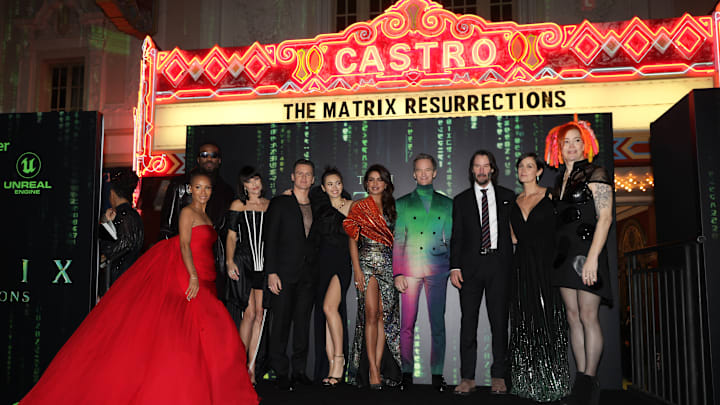Village Roadshow Entertainment Group is a company known for being an acclaimed film producer and financier, with films such as The Lego Movie franchise, Ocean’s Eleven, Joker, and The Matrix falling under their umbrella of productions.
Unfortunately, the company has had financial struggles in light of a, “long-drawn out and expensive legal battle with its long-standing partner Warner Bros. over The Matrix Resurrections a 2021 sequel to the sci-fi series.”
The legal battle came as a result of Village Roadshow suing for breach of contract after Warner Bros. released The Matrix Resurrections on the streaming service Max the same day it was released in theaters.
As a result, as stated in court documents, the Chapter 11 filing took place in Delaware, “with $223.8 million in asset-backed secured notes and $163.1 million of senior secured debt.”
Village Roadshow has been around since 1997, and has both produced and released over 100 films.
Some other popular titles that have been produced and released by Village Roadshow include the 2018 Steven Speilberg dystopian sci-fi feature Ready Player One, Wonka, the 2023 adaptation of the musical fantasy following the chocolatier, and the Academy Award winning post-apocalyptic action film, 2015’s Mad Max: Fury Road.
The company, which is based both in Australia and the United States, sold a controlling interest to Vine Media Opportunities and Falcon Strategic Partners in 2017.
By 2018, the company was developing its own film and television projects, all, “without a major studio partner.”
However, as court filings stated, this resulted, "in six movies and seven TV shows — none of which was profitable. In December, the Writers Guild of America put the company on its 'strike list,' after the company failed to pay its writers on several projects.”
Things reached a new level when Warner Bros., “filed for arbitration in early 2022.”
WB proclaimed in court filings that Village Roadshow, “failed to provide a payment exceeding $100 million under its co-financing deal on The Matrix Resurrections.”
This lead to a lawsuit from Village Roadshow a week later where they argued that, “the simultaneous release in theaters and on Max had cannibalized the film’s box office results.”
They went on to explain that, “under the circumstances, the company could not logically make the payment, which amounted to a free subsidy to Max in exchange for nothing.”
WB’s rebuttal was that the deal only needed a wide theatrical release as opposed to exclusive. The dispute was, “governed by the arbitration clause.”
Things began to snowball beyond the Matrix discussion as Variety explains Village Roadshow, “argued that Warner Bros. was shutting it out of its rights to co-finance as many as 15 projects.”
By 2022, Village Roadshow request for an injunction was denied and the case was ordered to arbitration where it currently sits.
Since the beginning of 2024, Village Roadshow has been exploring the possibility of a sale, and as Variety reports, this came when leadership concluded, “its liquidity crisis was becoming insurmountable.”
The staff has since been reduced from 45 to 11 employees as the shift has gone to completing this sale.
CP Ventura LLC has agreed to, “pay $365 million for the company’s library,” with its representatives being Steven Kram and Steven Blume, the co-founders of Content Partners LLC, which is an investment firm that specializes in acquiring both television and film libraries.
In court documents filed in relation to Village Roadshow filing for bankruptcy, the company explained that, “the WB arbitration has caused the company to incur more than $18,000,000 in legal fees, nearly all of which remain unpaid, and presents the threat of a potential arbitration award that could flatten the company’s balance sheet, but that is not the full extent of its impact.”
While the case is still in arbitration with Warner Bros., a hearing is scheduled for April 25. The bankruptcy filing shows just how quick and serious things can change in the film industry.
The industry has been rocked by production slumps after everything from the pandemic to the Hollywood strikes, which both caused delays in production.
In the bankruptcy court documents, Village Roadshow explains that, “The company historically enjoyed a prolific co-production, co-financing and co-ownership relationship with WB."
The documents further share that, "Even if the WB arbitration is resolved, the company believes that it has irreparably decimated the working relationship between WB and the company, which has been the most lucrative nexus for the company’s historic success in the entertainment industry.”
While both sides have stated their points, it will be up to legal representatives to see what will happen financially as a result of such cases for both companies.
